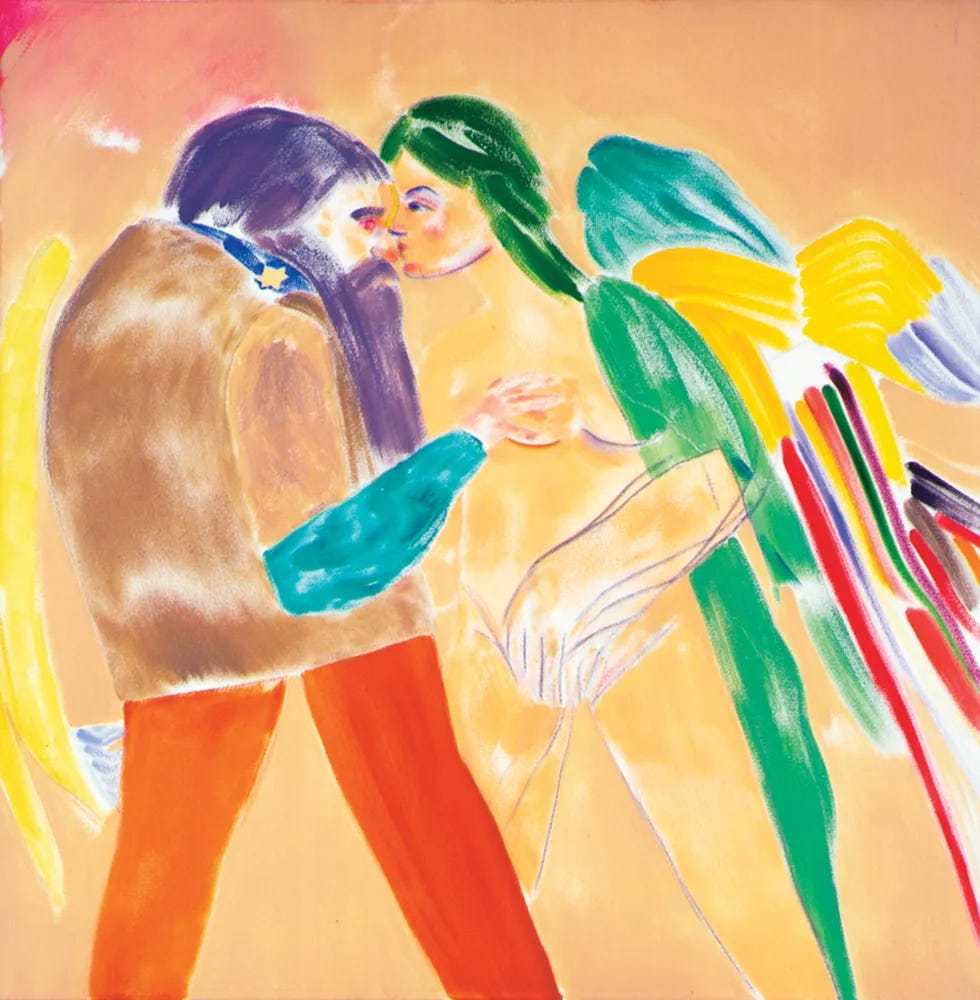I suppose I haven’t been very honest recently, at least not forthcoming since I started to make choices that I thought necessitated secrecy, to protect my privacy, or more truthfully, to avoid judgment. Some of you may care, some of you may be subscribed out of obligation, or curiosity, in case you make an appearance, and some of you may be subscribed but disinterested. Maybe you expected something different. I recently decided to write fiction—autobiographical fiction—after reading the complete works of Rachel Cusk, Sheila Heti, Ben Lerner, and Garth Greenwell. More accurately I decided to describe my writing as fiction. A nominal change, one intended to relieve me from the embarrassment of saying that I write essays in my spare time.
Oh, and I also revisited Chris Kraus’s “I Love Dick,” a classic that I totally misunderstood the first time I read it in my early 20s, more interested in the premise of the project—using an unrequited crush as creative fodder—than the theoretical aim of her novel—to define a “Lonely Girl Phenomenology.” If Chris Kraus could publish hundreds of pages of letters written to a man that she met twice, why couldn’t I write about a two month fling with utmost seriousness and attention to detail? Language always seemed to precede my life anyway. First I wrote that I was a transsexual; And then I became a transsexual. I wrote my way into and out of love.
Some people on this newsletter, a few past lovers, friends, acquaintances, my parents (especially, eek!) have undoubtedly seen themselves represented in my writing in ways that caused them discomfort, or grief, and I apologize if my carte blanche approach has ever caused you pain; I enjoy writing about myself, writing through an experience, or a period of time, trying to capture the essence of this experience in words. And I believe, I think, in the value of vulnerability and self incrimination, saying what other people leave unsaid or hidden or unexamined. But sometimes my attempts are unfinished or overstep boundaries, recounting stories that don’t belong to me or narrating beyond myself (which is, I imagine, where my writing has the capacity to upset.)
My friend Elliot posed a question to me once after I monologued about whether I felt capable of writing fiction (although, I think I was really trying to decide if I felt capable of writing literary fiction). To paraphrase her offering: Why not fiction? She was judicious, unsparing, perhaps from the weed, but more likely from her generous intuition, a quality that cemented our friendship when she approached me at the bookstore where she worked to recommend “The Callout” by Cat Fitzpatrick.
Why not fiction?
I cannot locate the quote in “I Love Dick” to attribute it properly, but there is a passage near the end of the book, after the essays on R.B. Kitaj and Hannah Wilke, where Chris Kraus questions why she continues writing to Dick, a cultural critic and colleague of her husband who she met one December evening when the three had dinner together. Kraus theorizes that it is impossible to write directly to Dick, to anyone, because the text becomes self referential—entirely in conversation with itself, the prior sentence.
Genius! I thought as I read on the airplane, overcome by a recognition of some truth in this statement. Everything I’ve written is fictionalized to some extent in this way, each new sentence trying to resolve the problem created by the previous. Narrative, basically: How do I tell an interesting story? Carte blanche, again. My depicted emotion or perspective takes precedence over the felt emotion or perspective. Although I recognize that this is probably a simplification. My emotions, my perspectives on them, are always morphing through conversation with friends, reading, self reflection, time, etc. I guess what I’m trying to say is that sometimes I make shit up! This isn’t a unique predicament, I know. We all make narratives of our lives to make sense in a senseless world.
I’m contending with what it means to write or try writing autobiographical fiction because, to be honest, I feel less like a serious writer these days. Even though writing remains one of the few things that makes me giddy. I often feel the sort of sexual electric jolt of being touched by a crush when I rearrange the punctuation and syntax of a paragraph to create a certain rhythm. Paradoxically, the more I read the less confident I feel about my own writing. I liked writing as a kid, to entertain and ingratiate myself with my friends, who all wrote too. We lived in that imaginary space together. For a time. Maybe I’m trying to preface some of the writing to come: some of the details will be smudged, fingerprinted, like a heart drawn into a foggy window, or stolen, or exaggerated (like my dad taught me: “never let details get in the way of a good story,”) and you might recognize yourself, or someone else, or myself. But these are characters, pale attempts at putting subjectivity on the page. My own “Lonely Girl Phenomenology.”
Image: R.B. Kitaj: Los Angeles no. 26 (nose kiss), 2003.
Currently: The Wall by Marlene Haushofer. And “Starburned and Unkissed” by Caroline Polachek because I remember how innocently he declared the song described his life at the moment as he looked forward. I thought I was the whistling kettle. And he was the ghost limb reaching in the metaphor. That night I realized I could love him again. And I knew that I would, that I would come home to him, for that smile, for those eyes.




